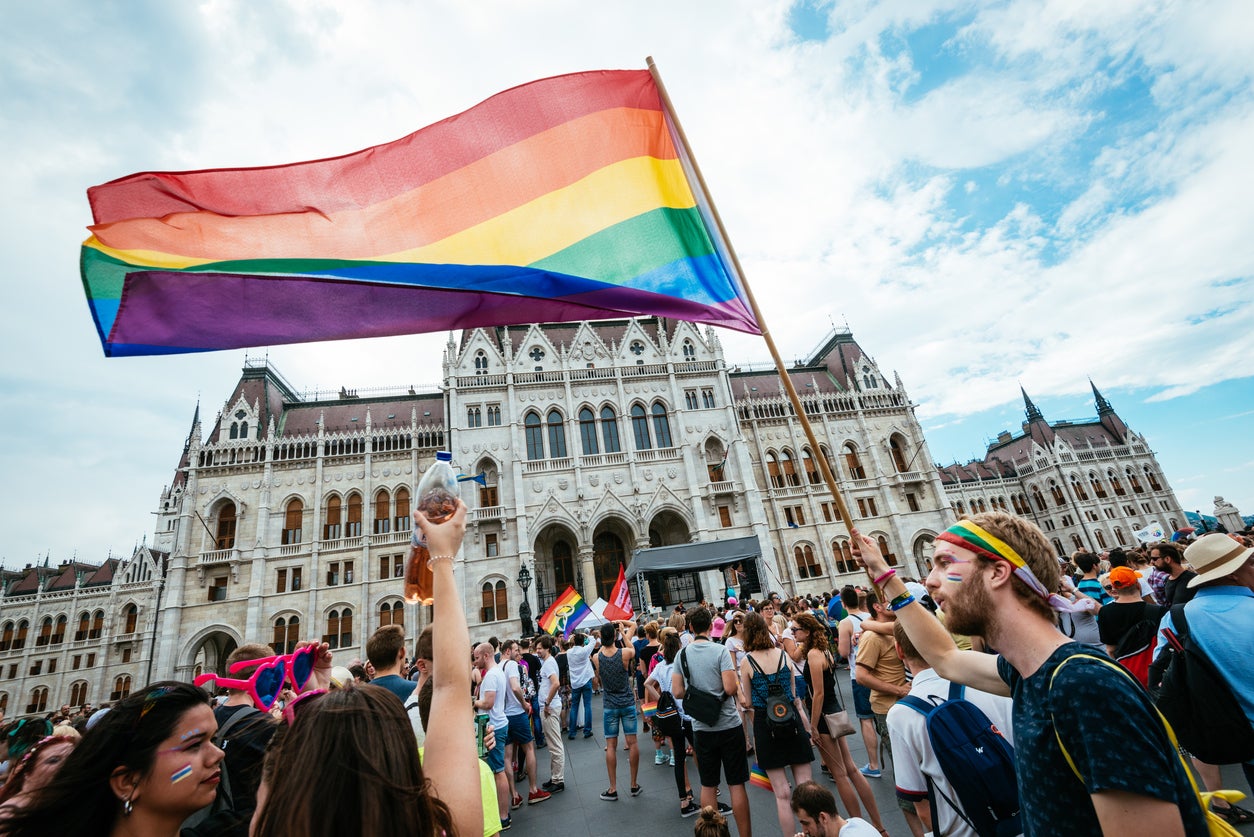The Independent's journalism is supported by our readers. When you purchase through links on our site, we may earn commission.
Hungary’s new homophobic law shows why LGBT+ rights can never be taken for granted
With the far right retaining a strong presence in the global political landscape, no minority can truly feel protected. Pride remains as important as it was 50 years ago


Your support helps us to tell the story
From reproductive rights to climate change to Big Tech, The Independent is on the ground when the story is developing. Whether it's investigating the financials of Elon Musk's pro-Trump PAC or producing our latest documentary, 'The A Word', which shines a light on the American women fighting for reproductive rights, we know how important it is to parse out the facts from the messaging.
At such a critical moment in US history, we need reporters on the ground. Your donation allows us to keep sending journalists to speak to both sides of the story.
The Independent is trusted by Americans across the entire political spectrum. And unlike many other quality news outlets, we choose not to lock Americans out of our reporting and analysis with paywalls. We believe quality journalism should be available to everyone, paid for by those who can afford it.
Your support makes all the difference.Amidst an increasingly draconian crackdown on civil liberties spearheaded by Hungarian Prime Minister Viktor Orbán and his conservative Fidesz party, a new anti-LGBT+ law was passed by Hungary’s parliament on Tuesday – making the country the only European Union member to have such homophobic legislation.
The new law explicitly bans the dissemination of material deemed to “promote” homosexuality and transgender identities to those under the age of eighteen, as part of an effort to “protect” minors.
As expected, such an illiberal measure has drawn the ire of various watchdogs and campaigners both across Hungary and the rest of Europe, who deem it symptomatic of the growing repressiveness being fostered in the Central European country. Apart from the way in which this new law seemingly makes the age-old and profoundly harmful association of homosexuality with paedophilia, it could also cause tangible harm to LGBT+ children.
In a country where 42 per cent of LGBT+ individuals have reportedly contemplated suicide and more than half of queer youths have reported feeling unsafe at school, cutting teenagers off from vital support networks could amount to a death sentence.
What this new law most urgently highlights, however, is that the rights and protections recently afforded to the LGBT+ community cannot be taken for granted. Hungary is not the first country to recently take a step backwards on this front. In 2013, the Russian government passed the infamous “gay propaganda law” – to which Hungary’s own law has been compared – that has stifled the development of a national Pride movement and has had a deeply damaging effect on the country’s LGBT+ community. Six years later, Poland witnessed the creation of “LGBT-free zones”, eventually taking up around a third of the country’s territory.
The far right, which demonises, and occasionally uses, the LGBT+ community as part of its political ping pong game and artificial culture wars, remains a powerful force across the world. The electoral appeal of nationalist demagogues may have been dented by their failure to tackle the Covid-19 crisis, but throughout Europe, hard-right parties maintain enough support to occupy a coveted vantage point from which to launch a blitz in upcoming general elections. With the far right retaining such a strong presence within the global political landscape, no LGBT+ individual or other minority can truly feel protected.
This all serves to illustrate why Pride remains just as necessary today as it was 50 years ago – even in a country like the UK, where the LGBT+ community enjoys near-equality and social acceptance in pockets of the country.
In London and other British cities, Pride has become such a star-studded fixture that it’s easy to forget what has always been at its heart: protest. While the gaudier, gimmicky commercialism that has attached itself to Pride has been rightly attacked, such criticisms are often unfairly conflated with another popular line of thought. “If LGBT+ people now have equal rights,” the argument usually goes, “why do we need Pride or this general onslaught of ‘rainbow’ media?”
But as hackneyed as it may sound, history has shown time and time again that rights are not set in stone, and can easily be reversed – especially when right-wing parties desperately need to pander to their electorate’s underlying insecurities to score extra political points. Pride remains important in a world that is still too ready to gnaw at LGBT+ rights when it sees fit. Apathy is dangerous, and complacency is the first step on the path towards totalitarianism.
Join our commenting forum
Join thought-provoking conversations, follow other Independent readers and see their replies
Comments